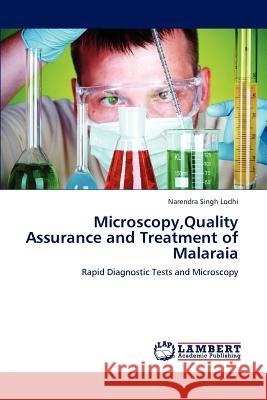Microscopy, Quality Assurance and Treatment of Malaraia » książka
Microscopy, Quality Assurance and Treatment of Malaraia
ISBN-13: 9783846528365 / Angielski / Miękka / 2012 / 220 str.
Malaria remains a major cause of death and disability worldwide and is endemic to much of Africa, South America, and southeast Asia. Other malaria risk areas include the Middle east, some countries in Central America and Polynesia, with most other continents virtually free of the disease. The choice between RDTs and microscopy depends on local circumstances, including the skills available, patient case-load, epidemiology of malaria and the possible use of microscopy for the diagnosis of other diseases. Where the case-load of fever patients is high, microscopy is likely to be less expensive than RDTs, but may be less operationally feasible. Microscopy has further advantages in that it can be used for speciation and quantification of parasites, and to assess response to antimalarial treatment. Microscopy can also be used in the identification of other causes of fever. However, a major drawback of light microscopy is its requirement for well-trained, skilled staff and, usually, an energy source to power the microscope.











